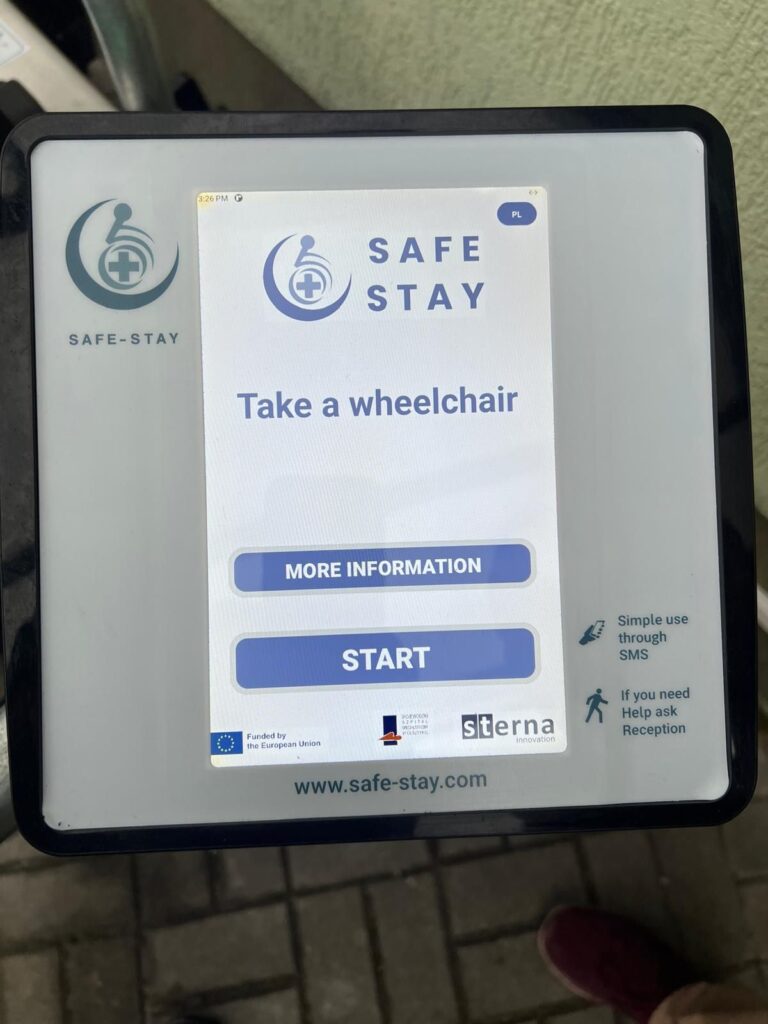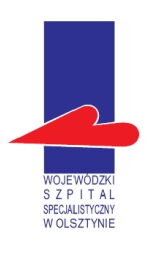Safe-stay
Safe in-hospital mobility of patients and visitors

The Wojewódzki Szpital Specjalistyczny in Olsztyn (Olsztyn Hospital) is one of the largest public, specialist hospitals in the Warmian-Masurian region of Poland, treating patients in inpatient and outpatient settings.
Approximately 24,000 patients are hospitalized annually, and approximately 100,000 patients are admitted to specialist outpatient care and diagnostic and therapeutic units.
The annual budget of the hospital is approx. PLN 370 million [app. EUR 78 million], of which about PLN 180 million [app. EUR 38 million] is spent on the purchase of medical devices, medicinal products, medical equipment, and services.
The Hospital Information System (HIS) currently used is Selene, a solution developed by CompuGroup Medical. Everything related to management of supply and demand in the outpatient department is stored within this system, so only one data source is needed for the purpose of solving the challenge.
Our organization has a strong data engineering department with direct access to the system’s database and sound knowledge of the data models so access to the information should not be a problem.
The Polish healthcare system does not provide staff responsible for helping patient to get to the appointments, either free access to mobility equipment such as wheelchairs. The patient must rely on accompanying family member, caregiver, or hospital staff. The problem applies to people being on their way to the points of providing medical assistance or visiting a person staying in the hospital.
This necessitates the involvement of medical personnel (detached from other duties) or the use of wheelchairs to help the above-mentioned patients. This means that a certain (hard to define) number of employees, instead of providing clinical assistance, takes care of such people, not only assisting them in moving around, but also, for example, looking for a wheelchair or walker in the hospital, taking care of the person and returning a wheelchair to the place from which it was taken. Due to staff shortages and overloading with clinical work, such additional duties of these people affect their well-being, fatigue, and have an impact on the quality of the services provided.
Therefore, there is a great need to provide free access to equipment (like wheelchairs), aimed at improving patient safety, effective use of staff working time, safe involvement in transporting people accompanying patients. This solution can also help to reduce the risk of collisions or blocking access roads on the hospital’s property. Patient safety and satisfaction are a priority for the hospital, which is why we are looking for organizational solutions that increase the sense of security and accessibility for patients and their families.
Patient safety and satisfaction are a priority for the hospital, which is why we are looking for organizational solutions that increase the sense of security of patients and their families.

Sterna Innovation specializes in IoT and brings intelligence to everyday objects, with a focus on developing medical devices. The company continuously develops technologies in sensors and communications, creating systems such as indoor/outdoor location solutions, process management tools, and user support systems.
Sterna Innovation positions itself as a partner that drives companies towards Digitalization, Industry 4.0, and Future Technologies, supporting clients in efficiently, economically, and safely developing their products.
The solution aims to create an innovative system to assist and empower patients who require wheelchairs during their hospital visits.
To achieve this, the solution integrates several technologies to develop intelligent wheelchairs capable of precise location tracking and use monitoring (e.g., moving through the hospital, waiting at a dispensing stand, stationed at an appointment, or left unattended) and reporting this information in real time to a central platform. The system includes geofencing capabilities to detect and alert when a wheelchair moves out of its designated zone. It also incorporates a patient-guiding system with a digital screen and voice audio to direct patients to their appointments (using prior identification) and back to the wheelchair collection stand. Additionally, it detects and reports real-time incidents, such as significant impacts or tipped-over wheelchairs.
The core idea is to transform wheelchairs from basic transportation aids into intelligent systems that enhance the independence and capabilities of patients requiring assistance, improving their hospital experience and reducing the workload on hospital staff.







